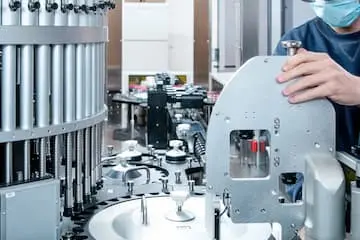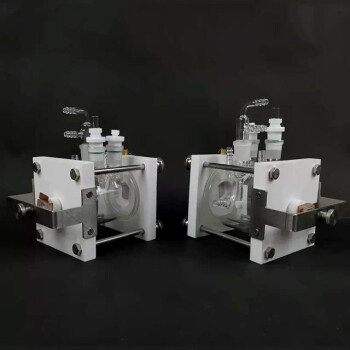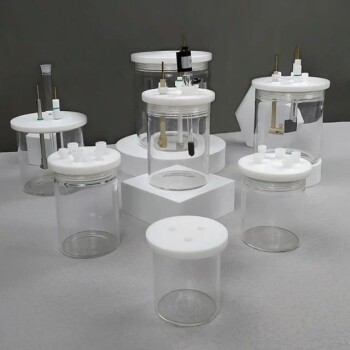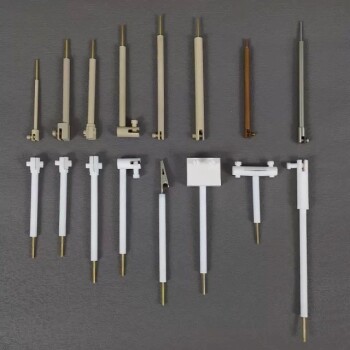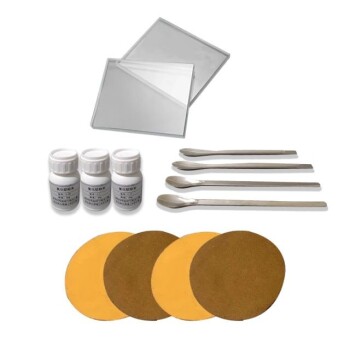Electrochemical materials are critical in achieving optimal yields and selectivity in synthetic organic electrochemistry. The material is chosen based on its electrochemical and mechanical properties, and it determines the success or failure of a transformation. Electrodes are the most important factor to consider, as the success or selectivity of a particular transformation is highly dependent on the material. Electrochemical materials should be inexpensive, non-toxic, stable to a wide range of temperatures, pressures and solvents, yet able to be manipulated into forms for electrode construction, such as rods, wires, plates, foams, and meshes.
Toggle Categories
Get Instant Support
Choose your preferred way to connect with our team
-
Get Free Quote Fill out form for detailed pricing
-
Send Email Detailed inquiry support
-
WhatsApp Quick mobile chat
Response Time
Within 8 hours on working days, 24 hours on holidays
electrochemical material
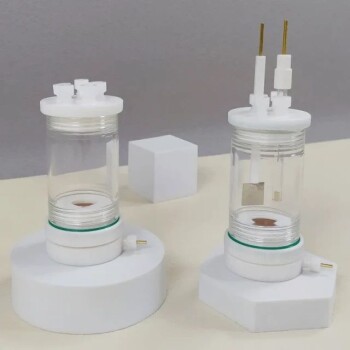
Multifunctional Electrolytic Electrochemical Cell Water Bath Single Layer Double Layer
Item Number: ELCM
$159.00

FS Electrochemical Hydrogen Fuel Cells for Diverse Applications
Item Number: FSE

Lab Electrochemical Workstation Potentiostat for Laboratory Use
Item Number: KT-CHIP

PTFE Electrolytic Cell Electrochemical Cell Corrosion-Resistant Sealed and Non-Sealed
Item Number: ELCP
$29.90
We have the best Electrochemical Material solutions for your laboratory needs. Our extensive portfolio guarantees appropriate standard solutions, while our bespoke design service allows us to meet almost any customer requirement. When selecting electrode materials, we consider factors such as performance, cost, availability, and machinability to ensure we provide the best solution for your specific process.
Applications of Electrochemical Materials
- Organic Synthesis: Electrochemical materials are used in organic synthesis to achieve optimal yields and selectivity. The choice of material is critical as it can define the success or failure of a transformation.
- Energy Production: Electrochemical materials play a crucial role in energy production, such as in batteries and fuel cells. They are used to facilitate the transfer of electrons, which is necessary for the production of electrical energy.
- Corrosion Protection: Electrochemical materials can be used to protect metals from corrosion. This is achieved through the use of sacrificial anodes, which corrode instead of the metal they are protecting.
- Sensing and Detection: Electrochemical materials are used in sensing and detection applications, such as in glucose monitoring devices and biosensors. They are used to facilitate the detection of analytes through the transfer of electrons.
- Environmental Remediation: Electrochemical materials are used in environmental remediation to remove contaminants from water and soil. This is achieved through the use of electrochemical oxidation, which breaks down contaminants into harmless byproducts.
Advantages of Electrochemical Materials
- High selectivity and sustainability benefits for organic compounds preparation.
- Control of the rate, location, and driving force of electron-transfer processes.
- Allows for the development of new synthetic methodology and reactivity.
- Provides processes that are less expensive and safer with less waste compared to classical approaches.
- Electrochemical reactions can be performed in batch or flow cells, divided or undivided cells.
- Electrodes can be manipulated into forms for construction such as rods, wires, plates, foams, and meshes.
- Electrode materials can be made from any conductive material.
- Electrode materials can impart a binary outcome by switching reactivity on or off.
- Electrode materials give unique outcomes and determine the selectivity for synthetic electrochemical reactions.
- Electrode materials can be exploited to control and change the selectivity of a reaction.
- Electrode materials provide opportunities to vary reactivity through electrocatalysis, mediator-modified, or chemically-modified electrocatalysis.
Our Electrochemical Material is a cost-effective solution for your laboratory needs. Our extensive product line provides a standard solution that fits your requirements. For more unique applications, our custom design service will help cater to your specific needs. Electrode material selection is crucial for desired outcomes in electrochemical reactions, and we ensure that our materials possess the necessary mechanical and electrochemical properties for their intended applications.
FAQ
What Are The Materials Used In Electrochemical Cell?
What Are The Examples Of Electrochemical Material?
REQUEST A QUOTE
Our professional team will reply to you within one business day. Please feel free to contact us!
Related Articles

The Invisible Architecture of Accuracy: Mastering Electrode Installation
Master the lifecycle of electrode installation—from inspection to alignment and maintenance—to ensure safety and reproducibility in electrochemical experiments.

The Architecture of Stability: Mastering Control with Double-Layer Electrolytic Cells
Chemistry is a battle against variables. Discover how double-layer electrolytic cells (30ml-1000ml) provide the thermal and atmospheric control you need.

The Geometry of Trust: Stabilizing the Electrochemical Cell
Data integrity begins with physical stability. Learn how to adjust your PTFE electrode stand to master gravity, eliminate vibration, and ensure reproducibility.

The Architecture of Silence: Why Quartz Defines Electrochemical Precision
In electrochemistry, the vessel is as critical as the catalyst. Discover why quartz's unique properties make it the unseen hero of precise experimentation.

The Silent Vessel: Precision, Light, and the Case for All-Quartz Cells
In high-stakes electrochemistry, the container is a variable. Discover how all-quartz cells eliminate contamination and unlock the visible spectrum.

The Invisible 90%: Why Spectroelectrochemistry Succeeds Before It Begins
Experimental success isn't just about the reaction; it's about the vessel. Master the 4-step preparation protocol for optical electrolytic cells to ensure data integrity.

The Thermal Paradox: Preserving Precision in Electrolytic Cells
Sterilizing an electrolytic cell is a conflict of materials. Learn why treating the cell as a single unit leads to failure and how to master the disassembly protocol.

The Thermodynamics of Restraint: Precision, Entropy, and the Art of the Five-Port Cell
The line between routine maintenance and catastrophic failure is often defined by ego. Learn when to clean, when to stop, and when to call a professional.

The Architecture of Silence: Why Material Choice Defines Electrochemical Truth
Explore how High Borosilicate Glass, PTFE, and POM create the perfect chemically inert environment for accurate electrochemical testing.

The Fidelity of Light: Preserving the Quartz Interface in Spectroelectrochemistry
The quartz window is the critical interface between your sample and your data. Learn why protecting it from oils, scratches, and solarization is vital for optical accuracy.

Escaping the Black Box: The Architecture of Insight in Electrochemistry
Unlock the correlation between visible phenomena and electrical data. A deep dive into the engineering and application of side-window optical electrolytic cells.

The Architecture of Invisibility: Deconstructing the "All-Quartz" Cell
An engineering deep dive into the construction of electrolytic cells. Why material interfaces matter, and how to choose between quartz and glass for data integrity.

The Glass Heart: Why Good Science Dies in Dirty Cells
The reliability of your electrolytic cell isn't just about chemistry; it's about discipline. Learn the systemic protocols for quartz and electrode maintenance.

The Architecture of Precision: Mastering Electrolytic Cell Maintenance
Reliable data starts with disciplined maintenance. Discover the psychological and technical approach to preserving electrolytic cells for peak performance.

The Vessel of Truth: Why the Container Matters More Than the Chemistry
The success of an electrolytic experiment often hangs on the material of the cell body. Discover the trade-offs between Borosilicate, Quartz, and PTFE.

The Symphony of Coefficients: Why Your Electrolytic Cell Cannot Be a Monolith
Glass withstands heat; PTFE does not. Understanding the thermal conflict in five-port electrolytic cells is key to preventing equipment failure.

The Anchor of Truth: Why Physical Stability Defines Electrochemical Success
In electrochemistry, data integrity begins with physical stability. Discover why securing your electrolytic cell is the most critical step in your experiment.

The Transparency Paradox: Mastering the Fragile Art of Electrolytic Cells
Glass electrolytic cells are precision instruments, not simple containers. Learn the systematic approach to handling glass to ensure safety and data integrity.

The Art of the Shutdown: Engineering Reliability in Electrochemical Cells
Post-experiment procedures are not chores; they are the foundation of future accuracy. Learn the disciplined protocol for maintaining double-layer electrolytic cells.

The Invisible Variable: Why Electrolytic Cell Hygiene Defines Data Integrity
Master the art of electrolytic cell maintenance. Discover how a strict cleaning protocol prevents cross-contamination and secures reproducible electrochemical results.
